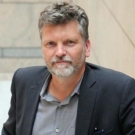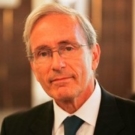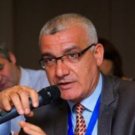Speakers

Sean Carroll
President and CEO
American Near East Refugee Aid (Anera)

Joseph P. Saba
Senior Adviser, Fragile and Conflict States
The World Bank

Omar Shaban
Founder and Director
PalThink for Strategic Studies – Gaza
Moderator
Event Summary
On July 8, 2021, Arab Center Washington DC (ACW) held a panel titled “Reconstruction in Gaza: Between Israel’s Siege and the Politics of International Funding.” Speakers were Yara M. Asi, ACW Non-resident Fellow and Post-Doctoral Scholar at the University of Central Florida; Sean Carroll, President and CEO of Anera; Joseph P. Saba, Senior Adviser, Fragile and Conflict States, at The World Bank and Adjunct Professor, Rule of Law for Development Program, at Loyola University Chicago; Omar Shaban, Founder and Director of PalThink for Strategic Studies in Gaza; and Ghassan Elkahlout, Head of the MA Program in Conflict Management and Humanitarian Action at the Doha Institute for Graduate Studies. Khalil E. Jahshan, ACW Executive Director, moderated the event.
Sean Carroll reported on his trip to Gaza in June to check on Anera programs there and see the extent of the war damage in Gaza. He said Gaza staff told him that Israel’s assault in May was worse than others because of the already difficult state of health and of the economy in the strip, especially with the pandemic, as well as the intensity and scope of the bombing. Carroll pointed to the unequal economic status of Palestinians vs. Israelis, with the latter having a GDP higher than many western countries. The Palestinian economy, on the other hand, was already in shambles, having been battered by four major wars and a punishing blockade that has meant that 60 percent of Gazans are food insecure. Carroll said that Anera’s main concern now is how to ensure long-term sustainable development and recovery instead of only rebuilding after each war. He spoke of Anera’s programs in Gaza that integrate the work of agriculture and women’s organizations to provide meals to schools as well as of a career accelerator program to train youth, especially in the IT sector. “As we look at all this reconstruction, we need to look at long-term prospects for jobs and livelihoods,” he explained. Rebuilding projects need to move at an acceptable pace, he added, and agencies that dole out US government funds must remove the burdensome hurdles for accessing the funding and must have more trust in Palestinian aid partners.
Omar Shaban stated that although there was a cease-fire on May 21st, the war on Gaza “continues in a different shape.” The entrenched economic blockade means that crossings into the coastal strip are blocked and no raw materials for construction or factory work are allowed into Gaza. In addition, agricultural exports are prohibited and over 10,000 containers of other exports, worth $200-300 million, are stranded at the port. These conditions are not tenable, Shaban said, noting that “all the elements for another escalation are there.” There is a need to address the extremely difficult living conditions in Gaza as soon as possible because “just removing rubble is not enough.” In addition, he cautioned that the fact that Israel wants to connect reconstruction with a prisoner swap and to make it conditional on the behavior of the authority in Gaza renders the population as unfairly stranded in between. Shaban said that talking only about the four major wars in Gaza misses the fact that the continuing cycle of violence also includes weekly raids, killings, and human rights violations. The young people in Gaza, in particular, need to feel some hope and optimism; otherwise, they will be pushed toward radicalization, he explained. He emphasized that 90 percent of children in Gaza are traumatized. Shaban said that “all the people are suffering and feel abandoned by the international community.” The estimated requirement of over $400 million in reconstruction aid, he said, should also address economic and fundamental needs and rights such as food security, health, education, employment, and housing.
Yara M. Asi discussed the destruction and reconstruction cycle and the challenges to rebuilding in Gaza, a place she described as having no parallel in the world in terms of traumatic stress, especially on children, an extremely weak economy, very high poverty and unemployment, continuous wars, the loss of vital infrastructure, constant de-development, and severe deprivation of rights and services. She explained the many reasons why rebuilding is difficult: much of what was destroyed before this war had not been rebuilt; the blockade of construction materials continues; there are shortfalls of aid pledges from previous wars; donors are reluctant to fund projects that could be destroyed again; and donor priorities are shifting because of COVID-19, a focus on other countries with humanitarian needs, and domestic political changes. Further, Asi said that the UN-created Gaza Reconstruction Mechanism has actually entrenched and formalized the blockade, giving Israel veto power over reconstruction activities and benefiting Israeli companies—while Israel incurs no costs whatsoever. Her recommendations included lifting the illegal and unjust blockade; accountability for war crimes and destruction by all parties, especially Israel; and implementation of significant reforms in Palestinian governance. She said that both the Palestinian Authority (PA) and Hamas are becoming increasingly authoritarian, thus creating a disconnect between the people and their government. Asi concluded by noting that the crisis in Gaza is entirely the result of human choices and the actions of politicians who are not held accountable.
Joseph Saba’s remarks centered on his recent trip to Gaza in June, combined with his long experience working on Palestinian development at The World Bank. He echoed other speakers when he noted that it is not possible to talk about reconstruction and economic and human development without focusing on alleviating oppression and bringing dignity to the people of Gaza. Working toward a durable cessation of hostilities is most important, he added. Saba said that the present situation seems more desperate than in the past. Previous assessments to which he has contributed, starting in 1993, have made similar recommendations, so it is clear that the conditions in Gaza have not improved—and have actually worsened over time. He said that current evaluations of the needs in Gaza by The World Bank, the United Nations, and the European Union all avoid discussing the hardest political decisions that need to be made, such as those regarding the status of Jerusalem, the right of return, the movement of people and goods, and Israeli settlements and military occupation. This will lead to another cycle of destruction and reconstruction. He asked, who is accountable to the donors? Who is accountable to the Palestinian people?
Ghassan Elkahlout discussed the release of the report, “Rebuilding Gaza: The Need for a Radical Shift in Reconstruction Strategy,” by the Center for Conflict and Humanitarian Studies in Doha, Qatar. He gave an overview of this document, mentioning such factors as the changing political and international context, how the latest war against Gaza has affected perceptions of the Palestine cause, estimates of the damage and lessons learned, and the political standing of Israel, Hamas, and the PA. Elkahlout described the recommendations of the study as delisting Hamas, putting East Jerusalem’s status back on the table, upholding the Responsibility to Protect paradigm, presenting Israel with a reparations bill, lifting the blockade of Gaza, establishing an international border control force, investing in Gaza’s productive base (in addition to focusing on humanitarian needs), implementing a whole-of-society dialogue on the nexus between humanitarian work and development, creating a reconstruction council, and valuing regional actors.
Featured Report Release
The webinar featured the release of the following report:
“Rebuilding Gaza: The Need for a Radical Shift in Reconstruction Strategy”
A Policy Briefing by the Center for Conflict and Humanitarian Studies
by Sultan Barakat, Sansom Milton, and Ghassan Elkahlout


